National
Details emerged as SERAP sues 36 governors for failing to fund poor children’s education.
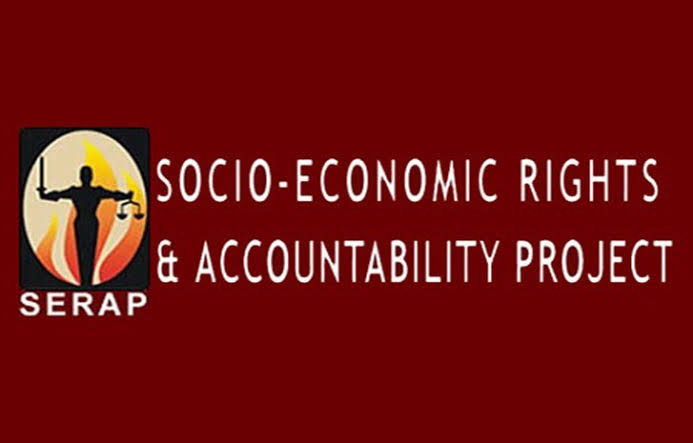
By Adeleye Kunle
The Socio-Economic Rights and Accountability Project (SERAP) has filed a lawsuit against the 36 state governors “for failing to redirect public funds budgeted to pay ex-governors undeserved life pensions to pay the counterpart funds that would allow poor children in their states to enjoy access to quality basic education,” TrackNews reports.
Over N40 billion is said to have been paid to 47 former governors from 21 of the 36 states in pensions and the provision of houses, staff, and motor vehicles that can be replaced every three to four years.
SERAP is seeking “an order of mandamus to direct and compel the 36 state governors to pay the counterpart funds that would allow poor Nigerian children to enjoy access to quality basic education in their respective states” in the suit number FHC/L/CS/1120/2022 filed last week at the Federal High Court in Lagos.
SERAP is also requesting a “mandamus order to direct and compel the 36 state governors to put in place mechanisms for transparency and accountability in the spending of any accessed matching grants from UBEC.”
According to SERAP, “state governors in their states are paying former governors billions of naira in life pensions and other retirement benefits while failing to invest in education and pay funds that would allow poor Nigerian children within their states to enjoy access to quality education.”
“Paying the counterpart funds for basic education in several states would be a major step forward for children’s rights, and ensure the rights and well-being of all children, regardless of their socioeconomic backgrounds,” according to SERAP.
According to SERAP, “the UBEC report that several states have failed to access N51.6 billion in matching grants suggests that these states are doing very little for poor children.” It also explains why the country’s out-of-school children have continued to rise. The current figure is over 13 million.”
SERAP also contends that “states’ failure to pay counterpart funds is incompatible with the Nigerian Constitution 1999 [as amended], the Compulsory, Free Universal Basic Education Act, and the country’s international human rights obligations.”
According to SERAP, “the persistent failure to pay counterpart funds has significantly contributed to denying poor Nigerian children access to quality basic education, opportunities, and development.”
The Universal Basic Education Commission (UBEC) and the Minister of the Federal Capital Territory are named as Respondents in the lawsuit.
“Rather than spending public funds to pay ex-governors undeserved pensions and other retirement benefits, governors should prioritize investment in education by paying up any outstanding counterpart funds to UBEC,” according to the suit filed on behalf of SERAP by its lawyers Kolawole Oluwadare and Opeyemi Owolabi.
“Redirecting public funds budgeted for former governors’ life pensions to fund education would be entirely consistent with the constitutional oath of office, as well as the letter and spirit of the Nigerian Constitution, because it would promote efficient, honest, and legal spending of public money.”
“Continuing to spend scarce public funds on these expenses would deny poor Nigerian children in several states access to quality, compulsory, and free basic education, burdening the next generation.”
“States should prioritize paying counterpart funds over life pensions and other misallocations of scarce resources.”
“According to the United Nations Children’s Fund (UNICEF), one in every three children in several states does not complete primary school.” 27.2 percent of children aged 6 to 11 do not attend school. Only 35.6 percent of 3-5-month-old children attend pre-school.”
“In several states, basic education has been steadily declining.” The education provided is of poor quality, and standards have continued to fall.”
“The learning environment is not conducive to effective learning.” School facilities are in a state of disrepair that necessitates extensive rehabilitation. Basic teaching and learning resources are frequently unavailable, leaving many teachers deeply demotivated.”
“This situation is clearly in violation of Section 18 of the Nigerian Constitution of 1999 [as amended], as well as Sections 2(1) and 11(2) of the Compulsory, Free Universal Basic Education Act.”
“States are required to gradually implement socioeconomic rights, including the right to quality education, commensurate with available resources.” A gross misallocation of resources to the detriment of the enjoyment of the right to a good education is a violation of human rights.”
-
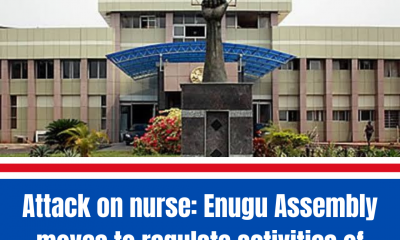
 News4 days ago
News4 days agoAttack on nurse: Enugu Assembly moves to regulate activities of masquerades
-
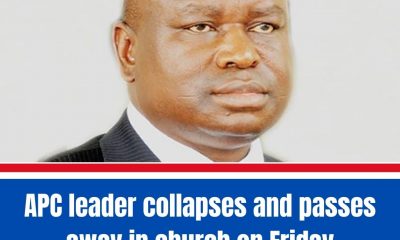
 Politics5 days ago
Politics5 days agoAPC leader collapses and passes away in church on Friday
-

 News1 day ago
News1 day agoFake Reverend Sister Arrested With 38 Children
-

 News5 days ago
News5 days agoLocal Content, Local Fraud
-
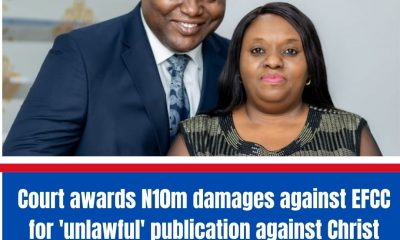
 News5 days ago
News5 days agoCourt awards N10m damages against EFCC for ‘unlawful’ publication against Christ Embassy Pastor Miebi Bribena and wife
-

 Politics6 days ago
Politics6 days agoHon. Dr Gentle Emelah inaugurated as commissioner of education,
-

 Politics4 days ago
Politics4 days agoMagnus Abe: my rift with Wike over
-
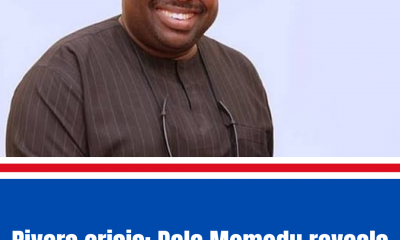
 Politics4 days ago
Politics4 days agoRivers crisis: Dele Momodu reveals cause of fight between Wike, Fubara




